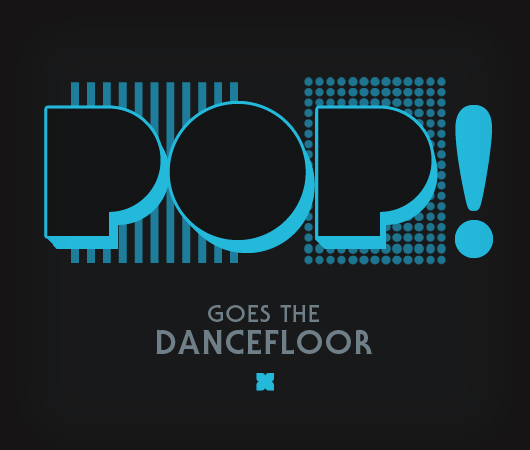Pop Goes the Dancefloor – Duke Dumont, Bondax, George FitzGerald, Jessy Lanza, and the Role of Pop in Today’s Electronic Sphere
For all its preaching about inclusivity, the dance-music community often likes to pride itself on […]

Pop Goes the Dancefloor – Duke Dumont, Bondax, George FitzGerald, Jessy Lanza, and the Role of Pop in Today’s Electronic Sphere
For all its preaching about inclusivity, the dance-music community often likes to pride itself on […]

For all its preaching about inclusivity, the dance-music community often likes to pride itself on appealing to certain sects while shunning others. Still, most years produce at least one ubiquitous hit, a track that balances hook and edge so deftly that it transcends style and audience; Tensnake’s “Coma Cat” and Storm Queen’s “Look Right Through” provide a couple of recent examples. Lately there has been a movement, particularly in UK chart pop, to replicate these tracks’ success on a mainstream level. This shift brings up a number of questions. Many of these chart successes began in nominally underground scenes. What have these artists changed in order to reach a new audience? And if they haven’t changed, what is unique about the current climate, in which a dance track can be a mainstream success? Meanwhile, less famous artists continue to play with populist aspects. What, other than record sales, separates them from the mainstream?
“My personal definition, and I don’t wish to impose this on anyone else, but it’s how I define pop music, is purely a song that has a vocal that is structured in a verse and chorus arrangement,” says British producer Duke Dumont (a.k.a. Adam Dyment). “If you consciously make a song that has a verse and a chorus, that’s a pop song.” After a string of nominally underground singles for the Turbo label, Dyment hit it big this year, making it to number one on the UK charts with “Need U (100%),” featuring the singer A*M*E. Granted, Dyment has been making music for years; his first single arrived in 2007, during a time when he was actively working within the now-maligned genre of “blog” or “fidget” house, chopping up pop vocals and inserting them into rousing grids of clicky drums. But doing “too many remixes” during this period eventually led him to start producing original material, largely in order to get DJ bookings. “Need U (100%)” was originally meant for his DJ tool series of EPs, For Club Play Only. But Dyment saw that “it had the potential to [reach] another level if [the song] got a good vocal on it. It would give it a much wider scope, a wider audience.”
Duke Dumont

Dyment didn’t set out to make a chart-topper with “Need U (100%),” but in its wake, does he feel pressure to recreate its success? Apparently not. “It was only a few years ago I couldn’t pay the bills, and was going to get another job and do my music on the weekends because I made so little money,” he remembers. “The real pressure is not being able to do what you really want to do, because you can’t afford to do it. Pressure for me now is obviously to keep the momentum going and keep on recording and—I mean, it’s pressure, but it’s not real pressure.” He’s a little reticent on how pop—by his definition—his new work will be, but the current speed of consumption seems a driving force: “People expect things at a quicker rate, and if it’s just you making music, maybe some audiences will get slightly impatient. The remedy to that is, everything you come out with, just make sure it’s really good. And then I think you can still sustain interest and have a career.”
Why was this particular track such a success, though? It’s clearly part of a popular wave of vocal house, or vocal house-esque tracks. Dyment feels that recently there has been a demographic shift. “When I first started DJing, it was an electro-house and techno environment. In 2007, 2008, clubs were 85% guys, without fail. At the moment, a lot of the clubs I play, it’s 50/50. Because there’s a lot of vocals in house music, I think girls can kind of warm to it a bit more.” The producer attests his favorite experiences DJing have been at “gay clubs, where the girls who are at the gay clubs know they’re 100% safe, and can just go and have a good time. The best experience as a DJ is when you look out at the dancefloor and people don’t give a shit how they look. They don’t care about anything else, they just want to dance and sweat and have a good time.”
It seems wishful to assume UK clubs have suddenly hit upon an egalitarian paradise, but surely something has changed. “The dubstep stuff got played out, and was just a bit too similar sounding and aggressive,” says Olly Wood, A&R at Black Butter Records, a diverse label that has found success in the currently house-friendly climate. “We were working on being an antidote to that, [releasing] stuff that was more girl-friendly, and it was just the right place at the right time—we managed to catch the mood. And now there are other labels that have a similar thing going on.” Thinking of pop house as a reaction to dubstep makes a bit more sense. Wood feels this is part of the UK charts’ natural pendulum. “Guitars will come back into it,” he predicts. “If you think about the last time that dance went into Britpop, it was like, there were bands with a dance aesthetic that were bridging it, people like Happy Mondays and Primal Scream.” If this is indeed the trajectory, his example of Black Butter’s centerpiece act Rudimental, a group with “live instrumentation… more like a band when they perform,” might then be ahead of the curve. “I reckon the dance stuff has got another year or two left in it,” he says.
Dyment and Wood have both been involved in releasing music for years, but the rise of the pop-club crossover has also been spearheaded by younger artists, among them the brothers Disclosure and the duo Bondax, both of which still have a teenage member. “All the kids that had a bit of an idea, have got the equipment to be able to just put that into something,” says George Townsend, who is half of Bondax, of the youth movement. “It’s so easy to make a professional-sounding track that you can create something interesting quite easily. There’s going to be even better and better producers coming through, younger and younger.” Bondax were too young to experience the shifts Dyment and Wood describe in the clubs, but they’re still wary about trends’ fleetingness. “In the UK right now, it’s very, very cool to like house music,” Townsend attests. “What I really hope doesn’t happen is that it falls in a similar way to dubstep, because too many people were just following fashions… you start closing that space for cool new music—which is really good right now, it must be emphasized. Like Chris Malinchak coming in at number two on the charts—that doesn’t make the track bad, that makes the charts really fucking good! This is the music we loved before it was popular, and now it’s popular because it’s good music.”
Bondax

Where Dyment worked to get his club track to a broader audience by adding a verse/chorus structure, the members of Bondax, perhaps because of their youth, sound much less calculating. “All we ever really wanted was to be big in the UK underground,” Townsend says. “To take influence from this music that we enjoy, which is seen as more underground music—because that’s what we’re into, that’s what we listened to before we were any success—and make happy versions of this kind of bass music. It was just purely a selfish thing—I guess we just have pop ears.” The duo isn’t actively fighting its popularity, but the guys are insistent that they somehow happened upon their success. “We always say to each other, as long as our intentions are right, if it becomes a big tune, then it doesn’t matter,” says Townsend’s companion, Adam Kaye. “We haven’t sold out. Even if it sounds more poppy, we [have to] like it in our heart. If it becomes a big tune then so be it, as long as you’re doing it for the right reasons, and you’re not doing it to make money or be a bigger act.”
It wouldn’t be surprising to find George FitzGerald‘s name in Bondax’s list of underground heroes. The London producer arrived in dubstep’s wake three years ago, releasing colorful, emotional takes on garage while balancing house- and techno-compatible arrangements with vocal hooks gleaned from popular R&B. If one was searching for a relatively underground precursor to the wave of house that’s currently sitting in the charts, one could make a very solid case for FitzGerald. The producer found popular success of his own this year with “I Can Tell (By The Way You Move),” released for Double Six, a subsidiary of major indie label Domino.
George FitzGerald

Where Bondax insists that the possibilities for pop are wide-open, FitzGerald maintains that his crossover track was a kind of once-in-a-career blowout, a “fuck off,” as he puts it. “For me, it’s very much like the end of a progression in my own music,” he says. “If you look at all the elements, there’s the deliberately old-school drums, and in the riffs and the sampled vocals. I got bored of using sampled vocals out of the R&B world, and elements I suppose I took from garage and vocal house. All of that was meant to be like, ‘I’m moving on from this. This is the last track I’m making like this.’ And in my head at least, it stands as this super over-the-top statement about finishing that off.” FitzGerald isn’t exactly sour about the tune’s popularity, but it’s clear it has exceeded his expectations, especially considering its place as an “endpoint” in his catalog. “I’m sure there’s a new market I’ve touched who want me to do another track like that, but it’s not going to happen,” he asserts. “I’m not saying I’m going to come and write something completely different afterwards—you’re going to be able to hear the progression.”
Regardless, FitzGerald did write “I Can Tell (By The Way You Move),” and it is a very popular track. How does the producer distinguish it from similarly big-room-ready tracks? “If things get too hooky, then people stop dancing—it becomes a concert rather than a dancefloor,” he says. “You have to bear that in mind. [For] that track, you could probably take all the same notes, and the same hookline, and produce it in more of a sterile, big-room tech-house style, so it would sound enormous on a soundsystem, and then it would sound kind of plastic and horrible. When I was doing the mixdown, my initial reaction was to make it as big-sounding and as pumping as possible. But actually that ruined the vibe of the track. In my head, it was meant to sound like some of the things from the ’90s: ravey, sort of acid house, like some of the stuff that made it into the charts in the ’90s. Actually, when you listen back [to music from that era] it has a really shit mixdown. It doesn’t sound as pumping as the stuff people make now. And that was actually the thing that kept the charm of the track.”
FitzGerald’s switch from club-oriented labels like Hotflush and Aus to Double Six isn’t exactly signing with a major label. But it gives the producer a unique home from which to release new forms, whether pop or experimental. He is insistent that “I Can Tell (By The Way You Move)” is merely a happenstance diversion in his discography, and not indicative of his relationship with the label. “It’s nice to work with a label where there’s more breadth,” he says. “It’s quite easy to get tunnel vision on the labels that I’ve been on, and that’s kind of what I want to get out of. Not broaden out in terms of going mainstream, but in terms of going into a world where—the people on Domino are equally underground, but they’re in a different world, they exist in parallel. It’s opened me up to loads of different stuff already, and it’s only been two or three months working with them. But already I’m thinking very differently about my music. My upcoming releases are not going to go anywhere near the charts.”
Jessy Lanza is signed to the similarly exploratory Hyperdub label, and has been featured in an article in The Guardian about “post-Cassie, post-Timbaland R&B.” Pull My Hair Back, the debut album she produced with Jeremy Greenspan of Junior Boys, has no chart-topping hits. “I was really flattered to be included with those people,” Lanza says of the article, “but I don’t even think Cassie was that important to me. I don’t see myself as being a neo-R&B singer.” Her wispy vocal presence is caked in delay, and as a result, the record’s intelligible bars are constantly dissolving into glossolalic fragments. This itself isn’t enough to ward off the mainstream; fellow Canadian artist Grimes has experienced a great deal of success experimenting with similar vocal treatments.
Jessy Lanza

As much as Pull My Hair Back is a pop album—and certainly by Dyment’s definition it is—it is a slightly crooked one, with its share of rough edges. “Some of the weird pockets come from the fact that Jeremy and I were passing files back and forth to one another, and he has a really nice studio and I have a pretty shitty studio,” Lanza remembers. “We both like to sit in the chair, and it’s hard for one of us to watch. We spent time together in the studio at some points, but a lot of the work would get done separately. Things would get layered on top of one another, so it has this kind of collage effect to it.” As a result, its hooks are buried, or sneak stealthily around its contours. While not a thousand miles from other dancefloor-meets-R&B fusions, its internal slink is perhaps too coy to really reach a mass audience. Lanza sees herself as more of a producer and songwriter, anyway. “I don’t have a crazy Katy Perry kind of voice, you know what I mean? I just don’t. When I’m doing vocals, I don’t think, ‘This is going to be the best fuckin’ vocal take,’ cause I can’t sing like that. I don’t have a strong voice. So I try to blend it into the mix in a way that’s interesting to people, because I’m not one of those powerhouse singers, and I don’t want to be. I think it’s more interesting to see how you can make it work in the context of the song while still keeping the structure.” Whether or not her songs are seen as having radio-ready hooks, Lanza seems fairly content with the public’s reception of her music. However, she is a little troubled by the assumption that the record was entirely produced by Greenspan. “People just have sexist opinions on production,” she says. “It’s just that old default of like, if there’s a girl and a guy making music, then the girl is the singer and the guy is the producer.” She admits that recording under her own name may have given people this impression, but the pair decided to forgo making up a duo moniker because, “Jeremy hates touring and has no desire to tour this record with me.” Even though Lanza is touring the record on her own, the lack of a big touring spectacle speaks to the project’s relatively humble ambitions.
In a similar sector of the North American dance music scene, though, more outsized trajectories are afoot. Olly Wood reckons Greenspan associate Morgan Geist is due for a UK chart-topper, as his 2010 single “Look Right Through,” written with Damon C. Scott as Storm Queen, was graced with an MK dub last year, and is now gaining popular traction. At the end of the day, it seems, chart success is still largely dependent upon how exuberant and outsized a song or performer is. Interestingly, almost everyone interviewed for this piece had either just released or was in the process of releasing an album. The album format typically lets dance producers that have been confined to 12″s experiment a bit more. At the same time, Disclosure’s Settle, the most prominent recent example of a pop-house LP, makes no excuses about being a simple compilation of singles. As we move into the future, one wonders how each of these artists will adapt to the format, and also how their respective fanbases, new or old, will accept it. It’s one thing to get into the charts, but it’s another entirely to sustain that level of popularity.

